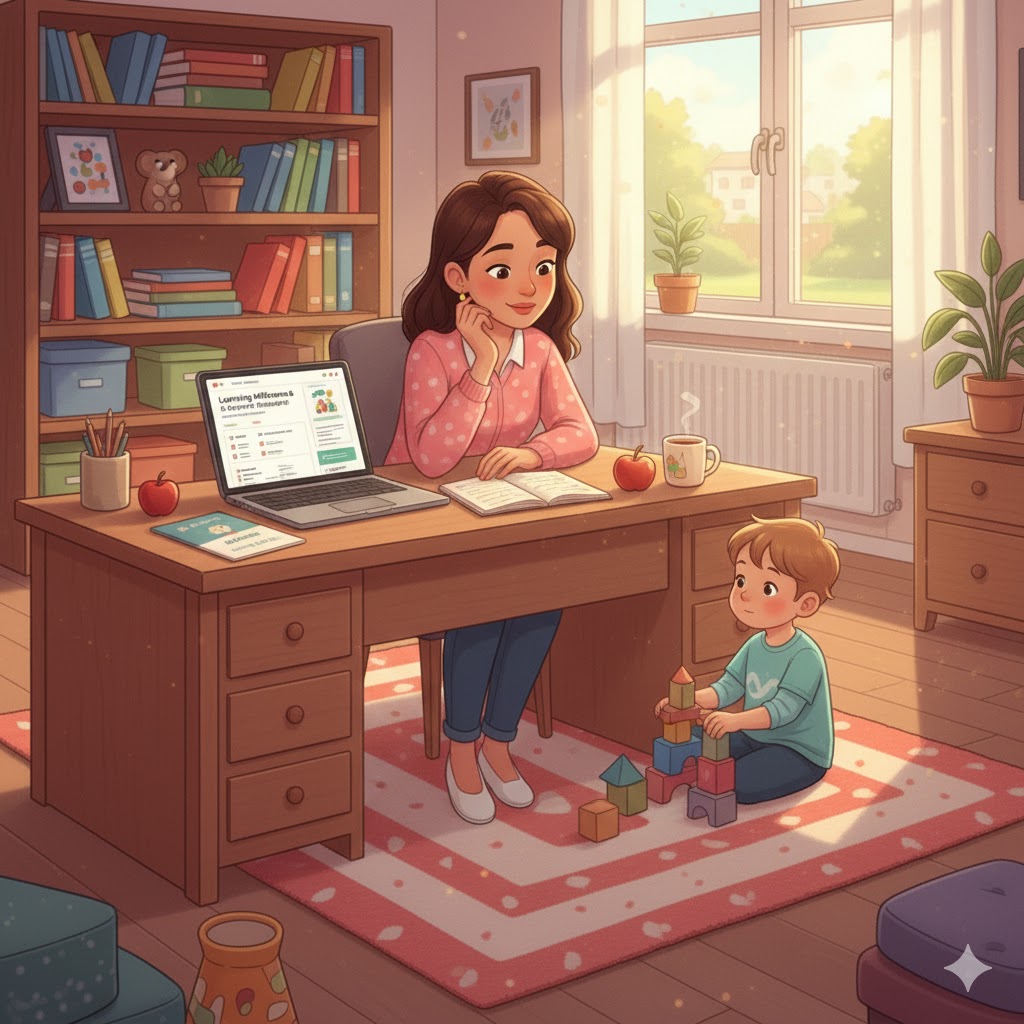If your child is under 10 and you feel like they are behind academically there are a number of things you can do.

Please note: if your child is behind on physical development and milestones, please see an expert. This article is solely focused on education and learning milestones which are very different to other aspects of a child’s development.
Firstly, have a think about which milestones you are using.
Children vary lots in terms of when they start reading or when they start understanding maths concepts.
Some children read at age 2, some children might start reading at 4/5 and others won’t until after 6 years of age.
Also up to the age of around 7/8 some children just aren’t ready to sit down and learn things formally or fill in worksheets and complete formal tests.
So if you are using formal methods of education and assessment it could be that your child just isn’t interested right now – and its perfectly fine to have a break from this and try again at another stage in their development.
Sometimes, the longer you leave it and let your child mature in other ways, actually helps them catch up faster.
Another reason your child might be behind is that they do not like the way the concepts are presented to them.
Also please do not give your child any indication that they are behind. This will stress them out and cause unnecessary anxiety, which will make it harder for them to focus and learn anything.
Here are some steps I would recommend:
1 – Take a break. Stop any enforced timetables or ‘learning time’.
2 – Do fun things with your child/children
3 – Take time to sit and just talk with them and don’t judge anything they say. If they say things like ‘reading is boring’ or ‘I hate maths’ just nod and show understanding as opposed to trying to refute them.
They are just testing boundaries and need a safe space to express how they feel.
4 – After a few weeks or months when you feel like your child/children have matured a bit try some new activities that are fun.
For reading skills (adjust for age)
- Can you find this letter in the house?
- Can you write the shopping list with me/for me?
- Pretend you can’t spell and you need their help.
- Sit with a book yourself and make out like you are really enjoying it. Modeling the behaviour you want is much more effective than any other form of persuasion.
For maths skills:
- Give your children some money and play some shopping games or let them do some real shopping.
- If they are old enough get them to budget with you
- Find some fun colouring worksheets or books that make maths interesting
- Maths games that make maths more hands on like balances are a much better way to learn maths than sitting at a desk and ‘studying’.
Organised Activities:
Look for local play groups or organised activities for children. Seeing other children learning and seeing their abilities can help inspire your child.
Bring in other adults/families and tutors:
Sometimes learning with a parent friend or professional educator can give your child a welcome change and creates new ideas and methods for learning.
Most importantly: try not to stress!
Every child develops differently, things like divorce, bereavement etc. can all affect the academic education that happens in your home. The most important thing is always to work on your bond with your child. As long as you are consistent with the idea that education is important and that you have goals to work towards with your child, things will fall into place.
Learning can happen in the park – you can write the names of things you see
Take some books to a cafe and do some reading/writing etc. the relaxed environment can help you and your child (and who doesn’t need a strong cup of tea/coffee!)
Keep trying and do what you can manage daily or weekly.
Your child will get there 🙂

Comments